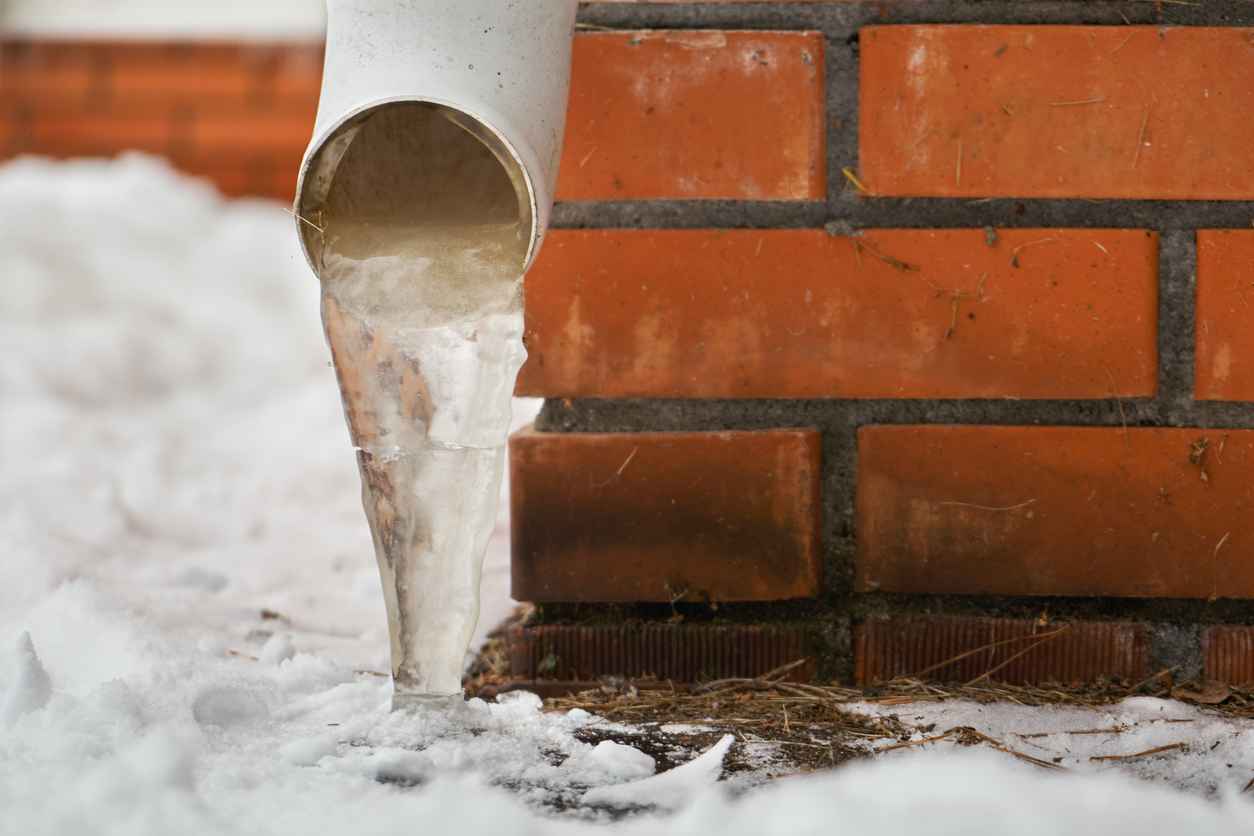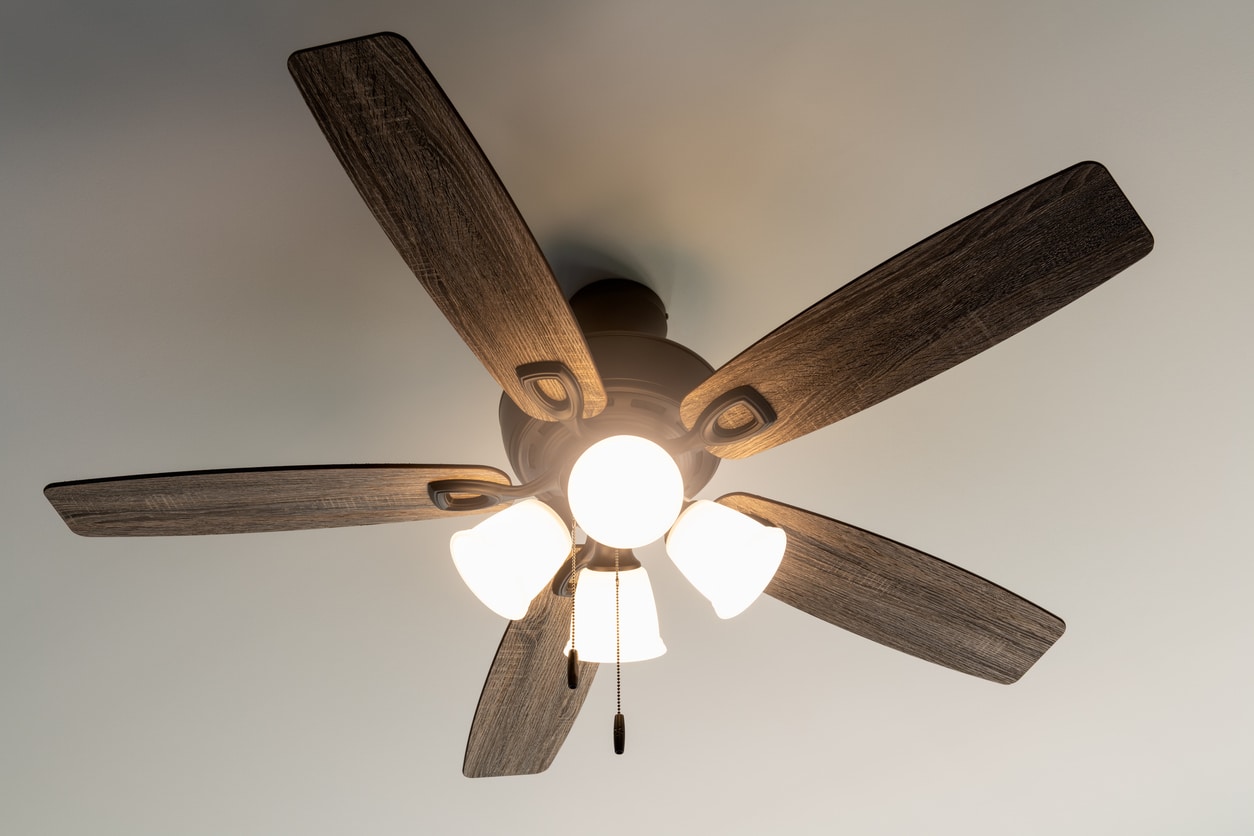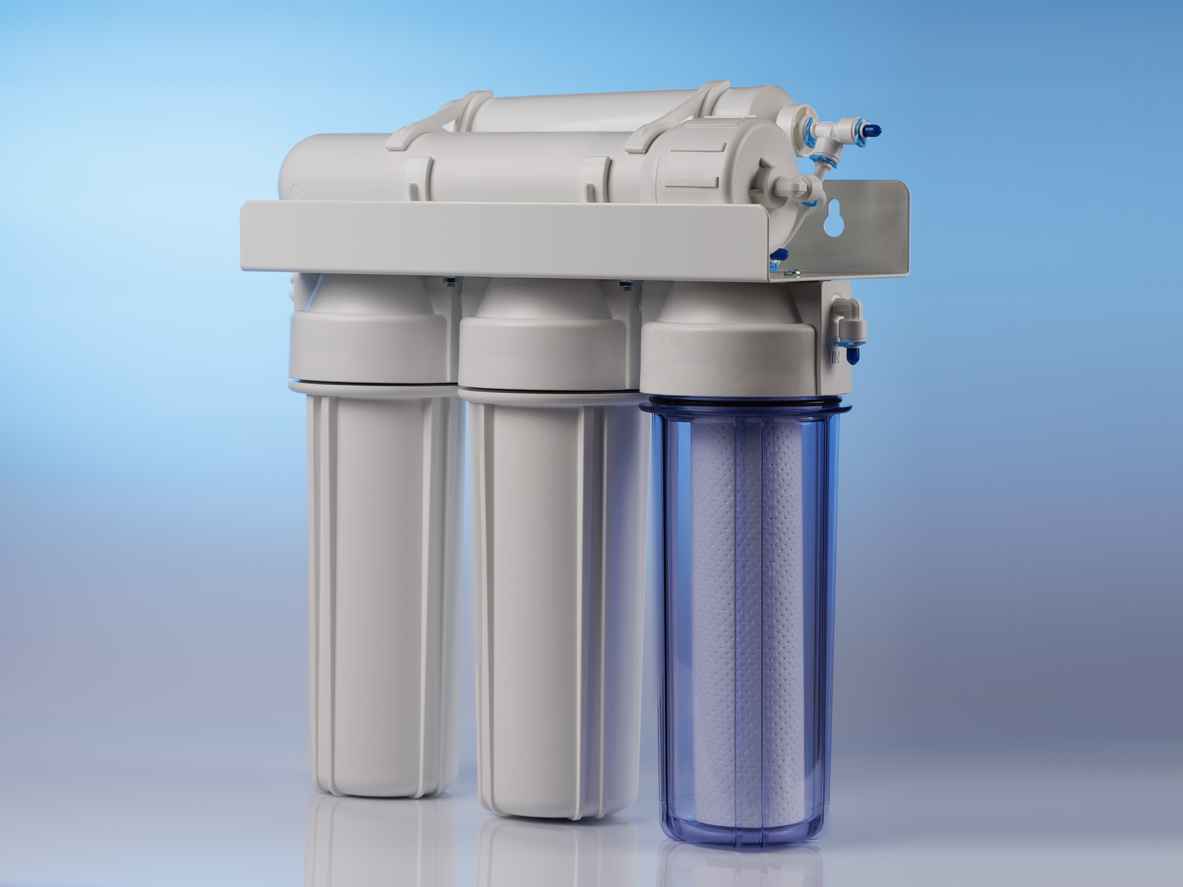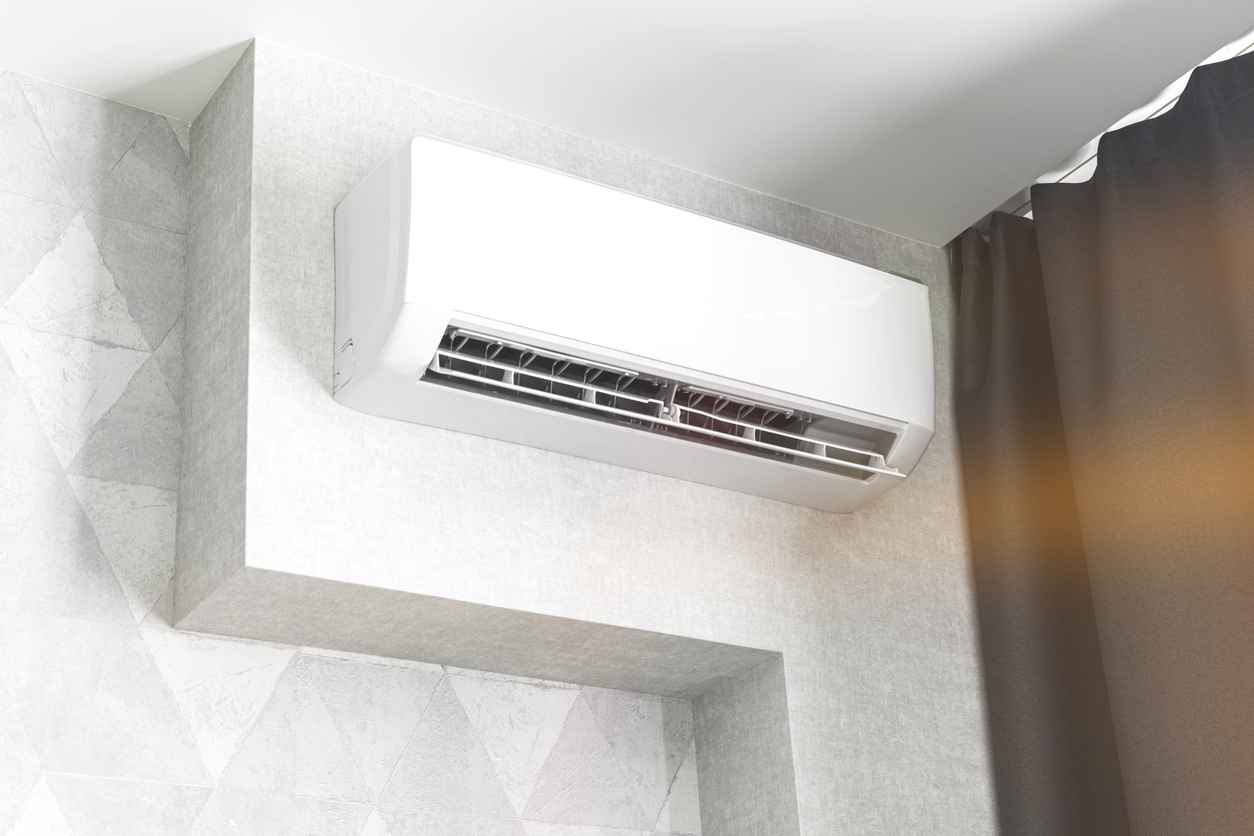How to Tell if Your Pipes are Frozen

As the temperature drops, homeowners across the frigid regions of the world face a common and potentially costly concern: frozen pipes. While it’s a phenomenon most of us hope to avoid, the reality is that freezing pipes are a recurring winter nightmare that can wreak havoc on your home and wallet if left unchecked. Understanding how to identify this problem early on is not only essential for your peace of mind but can also save you from the headache of burst pipes, extensive water damage, and expensive repairs.
My Buddy the Plumber, Electric, Heating & Air will walk you through the telltale signs that your pipes may be succumbing to the cold, explain the causes of frozen pipes, and provide valuable tips and strategies to prevent them from freezing in the first place. So, whether you’re a seasoned homeowner or a first-time winter dweller, join us as we explore the essential knowledge you need to protect your plumbing and ensure a comfortable, hassle-free winter season.
Signs Your Pipes are Frozen
Recognizing the warning signs of frozen pipes is the first line of defense. From subtle hints to unmistakable signals, understanding these signs is essential to keep your plumbing—and your peace of mind—intact during the chilliest of seasons:
- No Water Flow: The most obvious sign is when no water is coming out of your faucets, even when you turn them on. This is a clear indication that water may be frozen inside the pipes, blocking the flow.
- Frost on Exposed Pipes: If you have visible pipes in unheated areas like your basement or crawl space, look for frost or ice buildup on the pipes. This is a clear sign of freezing.
- Strange Odors: If you notice unusual odors coming from your faucets or drains, it could be a sign of a frozen pipe. This happens when a pipe is partially or fully blocked, and the odor gets trapped in the pipe.
- Unusual Sounds: Listen for strange noises like clanking or banging when you run the water or flush the toilet. These sounds can occur when ice is blocking the pipe, and pressure is building up.
- Low Water Pressure: Reduced water pressure in the faucets could indicate a frozen section in the pipe. This happens when the ice restricts the flow of water.
- Visible Frost on Exterior Walls: If the exterior walls where your pipes run have frost or ice buildup, it can suggest that the pipes inside are frozen as well.
- Toilet Tank Issues: If your toilet tank is not refilling, or the bowl is not filling up after flushing, a frozen pipe might be the culprit.
- Pipes in Unheated Areas: Pipes located in unheated spaces like garages, crawl spaces, or attics are more susceptible to freezing. Keep a close eye on these areas during cold weather.
- Temperature Drop: When the outdoor temperature falls significantly below freezing, there’s a higher risk of pipes freezing. Pay extra attention during cold snaps.
- Visible Cracks or Leaks: If a pipe has already burst due to freezing, you may notice water damage, leaks, or even visible cracks in the pipe once it thaws.
If you suspect that your pipes are frozen, it’s crucial to act quickly to prevent further damage. Thawing them or calling a professional plumber for assistance is often necessary to avoid burst pipes and costly repairs.
What Causes Frozen Pipes?
Frozen pipes occur when water inside the pipes freezes and turns into ice. Several factors can contribute to the freezing of pipes, including:
- Low Temperatures: Extremely cold weather, especially when temperatures drop significantly below freezing, is the primary cause of frozen pipes. Prolonged exposure to frigid conditions can cause the water within the pipes to freeze.
- Lack of Insulation: Insufficient or improperly installed insulation in walls, ceilings, and floors can leave pipes vulnerable to the cold. Pipes located in unheated or poorly insulated areas, such as crawl spaces, attics, or exterior walls, are particularly susceptible.
- Drafts and Cold Air Infiltration: Drafts of cold air entering the home, especially near plumbing fixtures or gaps in walls and foundations, can lower the temperature of the surrounding pipes, making them more prone to freezing.
- Inadequate Heating: Inadequate heating in certain areas of your home can lead to uneven temperature distribution. Rooms or spaces with insufficient heating are more likely to have frozen pipes.
- Overnight Freezing: Pipes are more susceptible to freezing during the nighttime when temperatures typically drop, and heating systems may be set lower.
Preventing frozen pipes involves a combination of insulation, proper heating, sealing gaps, and other proactive measures to ensure that your plumbing remains functional during cold weather. When pipes freeze, they can burst, leading to costly repairs and water damage, making it essential to address this issue promptly.
How to Prevent Frozen Pipes
Preventing frozen pipes is crucial to avoid potential damage and costly repairs. Here are some effective ways to prevent frozen pipes:
Insulate Your Pipes
Proper insulation is one of the most effective ways to prevent frozen pipes. Use pipe insulation sleeves or heat tape to cover exposed pipes, especially those in unheated areas like crawl spaces, attics, and exterior walls. This insulation helps maintain a higher temperature within the pipes and protects them from freezing.
Seal Gaps and Openings
Seal any gaps or openings in your home’s walls, foundation, and around windows and doors. Use caulk or insulation to prevent cold drafts from reaching your pipes. This not only keeps your home warmer but also helps maintain a consistent temperature around the plumbing.
Maintain Adequate Heating
Keep your home adequately heated, even in unoccupied or rarely used spaces. Ensure that your heating system is in good working condition, and consider using a programmable thermostat to maintain a steady temperature throughout your home, including areas with vulnerable pipes.
Drip Faucets
Allow a small, continuous drip from faucets with pipes that are prone to freezing, especially during extremely cold nights. The movement of water can make it less likely to freeze. This is an effective preventive measure for faucets served by exposed pipes.
Disconnect Garden Hoses
Before winter arrives, disconnect and drain garden hoses, and shut off outdoor faucets from the inside. Store the hoses indoors to prevent any remaining water from freezing and potentially damaging the connected pipes.
Keep Your Home Warm When Away
If you’re planning to be away from home during cold weather, maintain a minimum temperature in your house to prevent freezing pipes. This ensures that your heating system continues to run and keeps the interior warm enough to protect the plumbing.
Identify and Fix Leaks
Repair any leaks promptly, as even minor drips can lead to frozen pipes. The continuous flow of water can create ice blockages, increasing the risk of freezing.
Professional Inspection and Maintenance
For added peace of mind, consider hiring a professional plumber to inspect your plumbing system for potential vulnerabilities and offer recommendations for protecting your pipes from freezing.
Frozen Pipe Repair in Salt Lake City
In the Greater Salt Lake City area, you don’t have to face the winter freeze alone. My Buddy, the Plumber, Electric, Heating & Air is your trusted partner in safeguarding your home against the perils of frozen pipes. With our expert services, you can enjoy the peace of mind that comes with knowing your plumbing and HVAC systems are in capable hands. Contact us today to ensure a worry-free winter.
Recent Posts
Recent Posts


Join the My Buddy Club
Easy Maintenance & Exclusive Benefits
The My Buddy the Plumber’s Club is our comprehensive maintenance membership program that will protect your home comfort systems! From an in-depth home plumbing inspection to thorough furnace and air conditioning tune-ups, the club does it all. Our team will ensure your HVAC, plumbing, and electrical systems are running safely and in top shape. Joining our club can also provide plenty of exclusive perks, such as:
- Priority service
- 10% discount on repairs
- No after-hours fees
- Peace of mind
- Matched manufacturer’s warranty
- Tank water heater flush
- Drain cleaning
- Electrical safety inspection

















